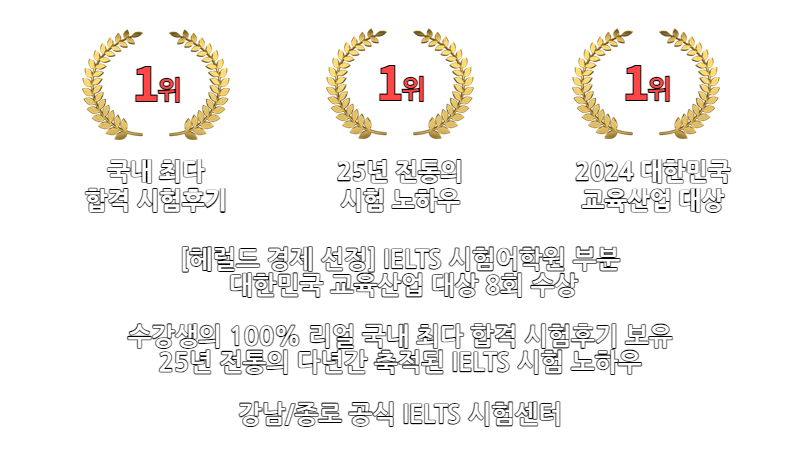IELTS Sample & Tips ? Speaking part 3
мқҙлІҲм—” м •л§җ мҳҒм–ҙкіөл¶Җ м—ҙмӢ¬нһҲ н•ҙм„ң IELTS мӢңн—ҳлҸ„ мһҳ лҙҗм•јкІ лӢӨкі лӢӨм§җн•ҳкі кі„мӢңлҠ” 분л“Ө мһҲмңјмӢңмЈ ? мҪ”лҰ¬м•„ н—Өлҹҙл“ңм—җм„ң м—°мһ¬лҗҳкі мһҲлҠ” IELTS Sample кіј н•Ёк»ҳ мҳҒм–ҙ лҠҘл ҘлҸ„ м‘Ҙм‘Ҙ нӮӨмҡ°мӢңкі , м•„мқҙм—ҳмё мӢңн—ҳ кі л“қм җмқҳ лӘ©н‘ңлҸ„ лӢ¬м„ұн•ҳмӢңкёё л°”лһҳмҡ”.?мқҙлІҲ мӢңк°„мқҖ, л§җн•ҳкё° мӢңн—ҳ нҢҢнҠё 3кіј кҙҖл Ёлҗң мғҳн”Ң л¬ём ңмҷҖ м„ӨлӘ…мһ…лӢҲлӢӨ. нҢҢнҠё 3м—җм„ңлҠ” к№Ҡмқҙ мһҲлҠ” м§Ҳл¬ёмқ„ нҶөн•ҳм—¬ мқ‘мӢңмһҗмқҳ л§җн•ҳкё° мӢӨл Ҙмқ„ нҢҢм•…н•ҳкІҢ лҗ©лӢҲлӢӨ. к°„нҳ№ мқ‘мӢңмһҗ м—¬лҹ¬л¶„к»ҳм„ң нҢҢнҠё 3м—җм„ң м§Ҳл¬ём—җ лҢҖн•ң лӢөліҖмқ„ н•ҳмӢӨ л•Ң, нҷ•мӢӨн•ҳм§Җ м•ҠлӢӨкі мғқк°ҒлҗҳлҠ” лӮҙмҡ©м—җ лҢҖн•ҙ л§җн•ҳкІҢ лҗҳлҠ” кІҪмҡ°к°Җ мһҲлҠ”лҚ°, мқҙлҹҙ л•Ң мӮ¬мҡ©н•ҳл©ҙ лҸ„мӣҖмқҙ лҗ л§Ңн•ң н‘ңнҳ„л“Өкіј мғҳн”Ң лӢөм•Ҳмқ„ м•„лһҳ лӮҙмҡ©м—җм„ң нҷ•мқён•ҳмӢӨ мҲҳ мһҲмҠөлӢҲлӢӨ.Speaking: Part 3 Tips and Sample Answer
Tip: Part 3 is without doubt the most challenging section of the exam, where the examiner may ask you in-depth questions regarding issues and topics that perhaps you havenвҖҷt given too much thought to before. It forces the candidate to answer with a certain level of spontaneity, and in most responses there is an element of ambiguity expected in terms of the test-takerвҖҷs knowledge or attitude regarding the issue in question. This means that the speaker is not necessarily sure what heвҖҷs saying is correct, and is often expressing his ideas in a cautious manner. After all the topics in Part 3 are usually abstract rather than personal so itвҖҷs natural for people talking about the issue to be unsure of the exact specifics. ItвҖҷs a good idea therefore for test-takers to have some expression!s showing these feelings of ambiguity, to make their speech sound more natural and native-like. The following expression!s listed below can also be found in the sample answer.
Expression!s suggesting ambiguity and spontaneity
I’d have to sayвҖҰ
I could be wrong thoughвҖҰI have to admitвҖҰ
Still thoughвҖҰ
I mean sureвҖҰ and then of courseвҖҰ
Perhaps/maybeвҖҰ
I could be wrong thoughвҖҰ
Let me think about that for a secвҖҰ
IвҖҷd bet/I reckon/ IвҖҷd sayвҖҰ
Maybe itвҖҷs about the sameвҖҰ
At least…anywayвҖҰ
What I mean isвҖҰ
Sample Answer (on Books)
Examiner: So, what type of books are the most popular in Korea these days anyway?
Candidate: I’d have to say novels, and usually ones where there’s either a fair bit of drama and comedy as most people go for that sort of thing. ItвҖҷs basically similar to what people like in movies. Non-fiction is also popular too, but not as much as novels here I think. I could be wrong though, the last time I was in Kyobo bookstore I have to admit I noticed hundreds of titles on business, learning English, that sort of thing. Still though, whenever I see someone on the subway reading something, itвҖҷs usually just your average novel.
Examiner: And do you think that as we get older we read different things? Like for instance you mentioned that there seems to be a lot of books related to business, would you say thatвҖҷs usually for a more mature age group perhaps?
Candidate: Well, let me think about that for a sec. I mean sure, we read fairy stories and Harry Potter and that kind of fantasy stuff when we’re kids, and of course teenagers are into comic books and trashy stuff like martial arts or SF. After that when you get into your late 20s, you go for more serious material, you know, like dealing with life as it actually is, perhaps novels like Trainspotting or Norwegian Wood, that sort of thing. And as you say the non-fiction tends to be for an older group, and not just that, IвҖҷd bet most of the people whoвҖҷd read a book on business are men, probably office workers, who are trying to figure out what their next big financial step is going to be. So overall I reckon the type of book you are into says a lot about where you are in life at that moment, yeah.
Examiner: And would you say most people read as much as they used to?
Candidate: Maybe not say as much as they did in my grandparentsвҖҷ generation when there was no TV or stuff, but people watch less TV these days I think, like compared to the 80s and 90s when we all seemed glued to the thing. Maybe itвҖҷs about the same. But one thing that really different, at least in this country anyway, is the way we read. IвҖҷd say more reading is done online now, especially when it comes to textbooks or academic stuff. I reckon most people prefer to access those books through a computer because theyвҖҷre searching for a particular section. What I mean is they have no intention of reading the whole thing. Instead you just go online, do a quick search, download the book, document or whatever, find the bit youвҖҷre looking for and thatвҖҷs it. Whereas even 10 years ago I reckon we would have been inclined to buy the book, just so that we could hold on to the information. But now that itвҖҷs stored online we donвҖҷt have to worry about that kind of thing anymore.






